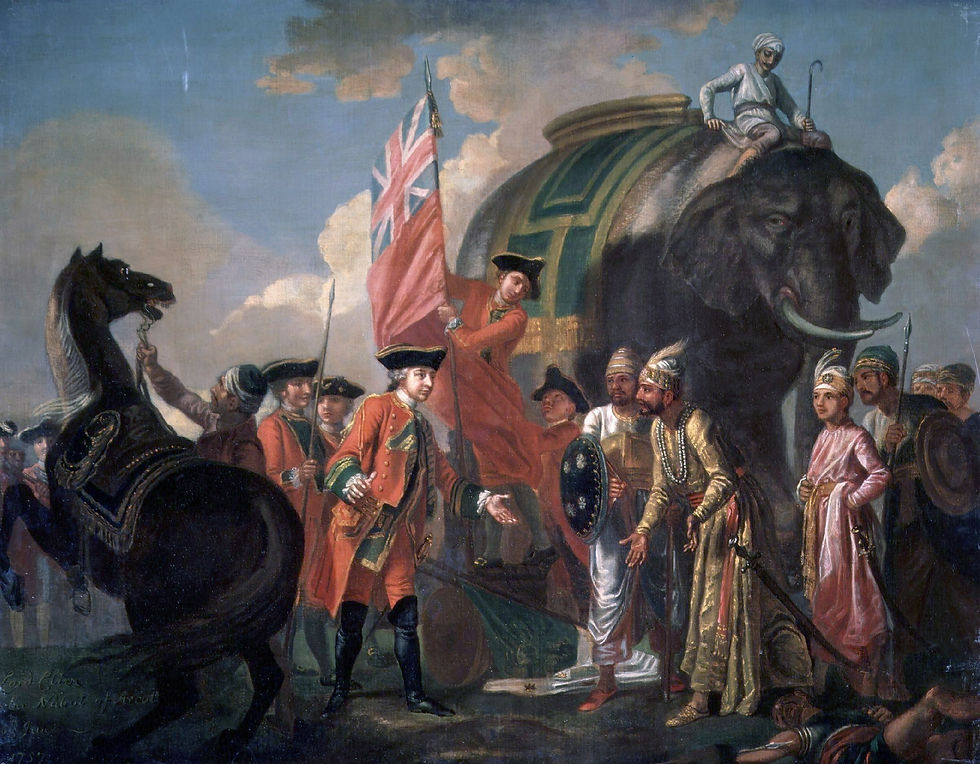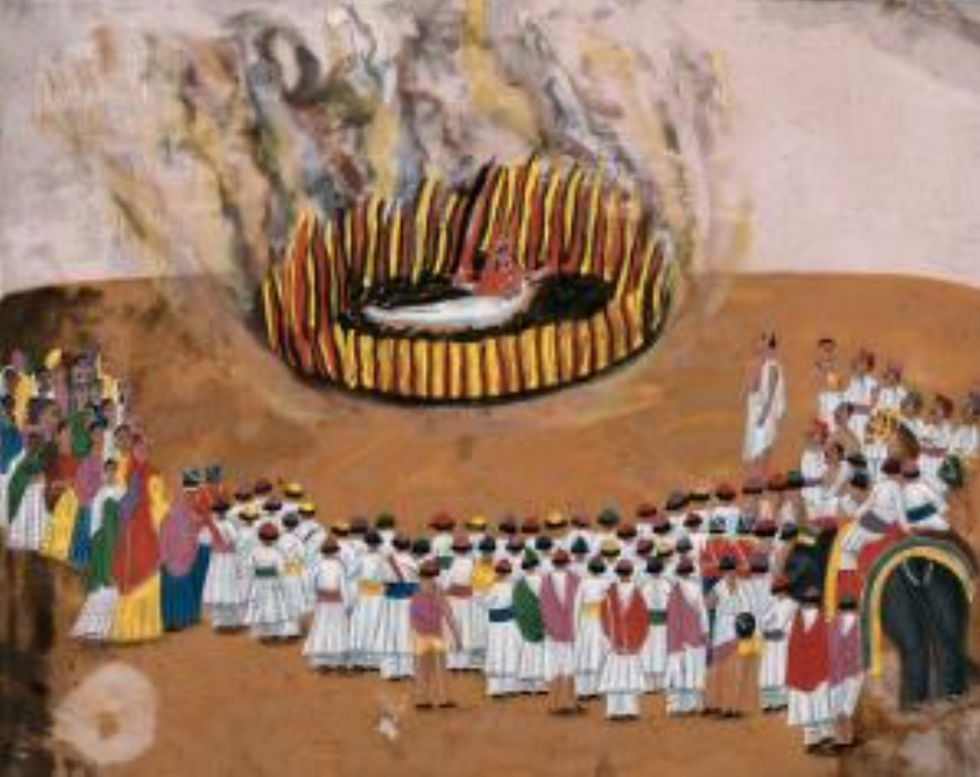By: Harshith Chinni, a HISTOYOUTH writer
We all have at least heard of the atrocities that Britons have caused during their rule in India. Men worked laboriously under the hot, glaring sun growing cash crops only to be exploited by the British. Women and young girls beaten barbarously by Britishers, only for their screams to be reduced to hysterical laughter by the officers. Britain has taken so much from India, including intangible objects such as their dignity and fundamental human rights. India gained independence from the British on August 15, 1947, with India’s economy progressing more rapidly, clinching 7th place in terms of GDP.
However, was the British rule a blessing in disguise? It did bring about a rapid number of changes and advancements in Indian society. A YouGov poll held in the United Kingdom shows that more people feel that the British Empire is something to be proud of, instead of condemning its actions.
Amartya Sen, a renowned economist who won the Nobel Prize in Economics in 1998, explained in his memoir what he felt Britain really performed for India during its imperialism. He compared this rule to that of the American rule of Japan and by stating that the differences in advancements before and after the rule would not signify the efforts of the Meiji Restoration, which had arisen due to the failure of the Tokugawa government with the aim of modernising Japan and protecting itself from foreign influence. He uses Karl Marx’s essay to emphasise how Britain was India’s main western contact and how India’s slowly emerging globalised culture was a direct consequence of British vernacular. The Mughal Empire, which ruled the Indian subcontinent before the British, was in havoc due to not being part of the advancements that the rest of the world was going through brought about by the Industrial Revolution.
India would not be India if not for British rule. If British settlers had not ruled over India, the Indian subcontinent would have been divided into 60-100 princely states with constant strife, which would not have coalesced to form the world’s largest democracy. The British had captured every state, ever since the Battle of Plassey in 1757.

The British rule had ignited a flame of nationalism inside people, which led to the formation of social reform movements, such as the Aligarh Movement which aimed to set up a system of Western-style scientific education for the Muslim population and to build a sense of trust between the Muslim community and the British government. This feeling of nationalism, thrusted forward by Western education led to the abolition of social injustice, such as polygamy (the act of having more than one husband or wife).
Raja Ram Mohan Roy, who played a crucial role in the abolition of sati, was influenced not only by writings in Indian Languages but also by British writings. His ideas finally came to fruition in the Bengal Sati Regulation Act of 1829.

British education also led to the rise of the educated class, with distinctions made in various fields, ranging from literature to biology. One notable case was Rabindranath Tagore, who won the Nobel Prize in Literature in 1913 and composed India’s national anthem. Education in the Mughal empire focused on rote learning and ignored scientific and technological advancements and became outdated.
India is also crowned as the world’s largest democracy. During British rule, the press had more freedom. However, these were not “gifts” that were carried out by the British during their colonisation era. These were only realised after the British had left. British rule also gave birth to the Rule of Law in Indian politics, which is still present in the Constitution of India.
British rule also gave India so many material objects. Railways, despite not being initially built for the benefit of Indians, were used to lower transport costs. Their main aim was to generate profit, not for the betterment of Indians. However, if the British had not established this system, the railways would not have even been formed but if they were, they may not be of quality.
Cricket is seen as a sport that unites all Indians regardless of religion, race, sex, or age. The feeling of watching a T20 match with your family, sharing the delicious food, squealing with delight if a player scores a 6, or hurling slang if a player is out. It is indescribable and resides in every Indian’s heart, but we should owe this sport to the British. They had brought it up to Indians, but not with the aim of Indians defeating them in their own game. If not for British Rule, you might see Virat Kohli dribbling past defenders and scoring a goal.
In conclusion, the British changed the life of an average Indian in contemporary society. We could thank them for education or the provision of cricket, but there are events one cannot forget such as the 4 million Bengalis who perished from the famine in 1943 or the bold crowd of people who lost their lives in the Amritsar massacre.
Works Cited
Rathi A., August 15, 2017, “The lies Brits tell themselves about how they left behind a better India”, Quartz, https://qz.com/india/1053297/independence-day-what-good-did-the-british-do-for-india-during-the-raj, Accessed March 30, 2023
Jha D., April 24, 2022, “Important Social Reform Acts of British India”, Panacea Concept, https://panaceaconcept.in/social-reforms-act-passed-during-british-rule/, Accessed March 30, 2023
Sen A., June 29, 2021, “Illusions of empire: Amartya Sen on what British rule really did for India”, The Guardian, https://www.theguardian.com/world/2021/jun/29/british-empire-india-amartya-sen, Accessed March 30, 2023
Wahlgreen D., July 26, 2021, “The British Empire is ‘something to be proud of’”, YouGov, https://yougov.co.uk/topics/politics/articles-reports/2014/07/26/britain-proud-its-empire, Accessed March 30, 2023
Reddy S., March 18, 2015, “Positive effects of the British rule in India”, Medium, https://medium.com/@srinath_987/positive-affects-of-british-rule-in-india-20ab613b3da8, Accessed March 30, 2023
Lamba D., March 10, 2019, “Atrocities on Indian Women and India by British During Their Rule”, MyIndiaMyGlory, https://www.myindiamyglory.com/2019/03/10/atrocities-on-indian-women-and-india-by-british-during-their-rule/, Accessed March 30, 2023
Image References
Hayman F., circa. 1760, Lord Clive meeting with Mir Jafar after the Battle of Plassey, Accessed March 31, 2023, <https://upload.wikimedia.org/wikipedia/commons/4/4f/Clive.jpg>
Sati, Accessed April 1, 2023, <https://creativecommons.org/publicdomain/mark/1.0>

Opmerkingen